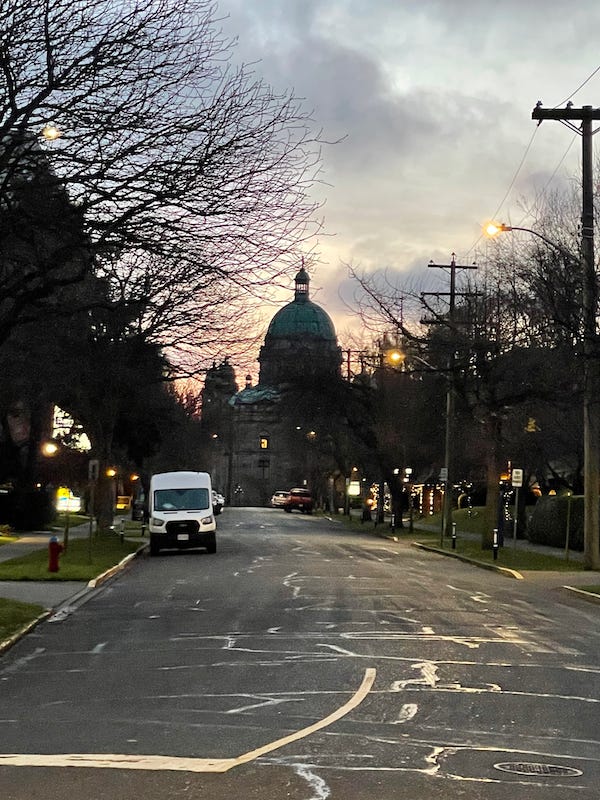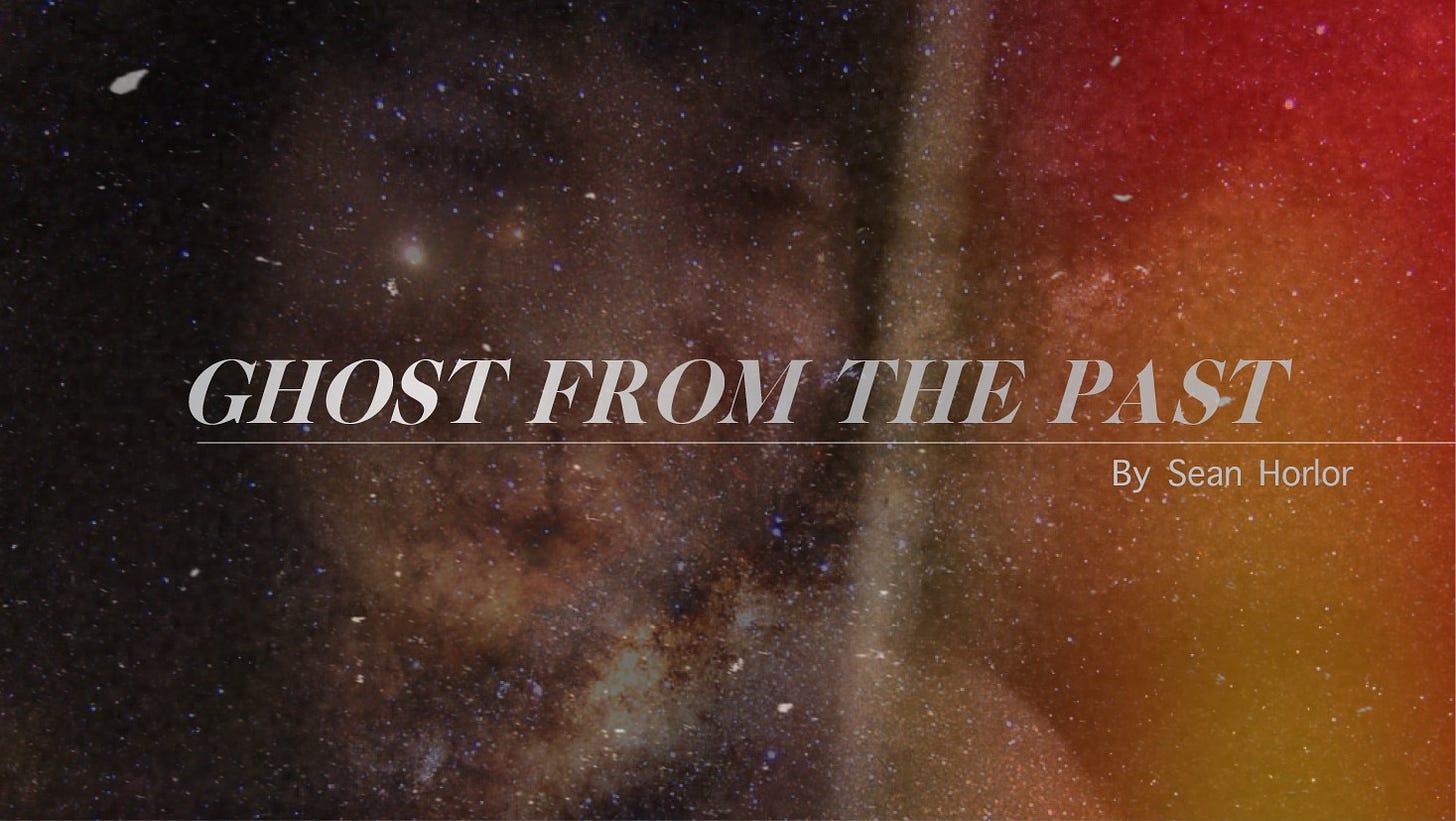What I remember is that the Outlook notification ding made me turn away from packing my backpack. It was late in April and the final few minutes of my workday. My office window was open to the green copper roof of the legislative buildings across the street and it was hot enough outside that if I closed my eyes and took a deep breath—fresh-cut grass and the intertidal funk of Victoria’s inner harbour—I could almost fool myself into believing it was summer.
An email arriving after 4 PM was not good news for me. It usually meant a last-minute news release request or a change to a speech for the premier. But it could also be something inconsequential like a meeting request or another stupid chain email about a coworker’s birthday cake. Turn the speakers off now and feign ignorance if questioned about the email in the morning? Or check my inbox and risk working late into the evening if it’s something urgent?
Thoughts like these made me wonder if I had made the right choice accepting this position. One year out of university, I was now part of the speechwriting team for the premier of British Columbia, at the center of the wheel of government, watching the whole system turn around me. It should’ve been the start of something exciting, the kind of career that could take me anywhere. Yet I spent all free time—evenings, weekends, lunch breaks—trying to finish writing my first book instead, working out metaphors on the margins of my work notebooks during team meetings, brainstorming book titles on the way back from question period at the legislature.

What I remember most clearly about that day is that I was wearing the black suit I had bought years ago for my mother’s funeral because it was light enough to walk home in on a sunny spring day with no overcoat. I know this because when I leaned over my office chair to move the mouse, my coat sleeve caught on an armrest and the computer monitor came back to life to the sound of fabric ripping.
I don’t know how long I crouched there holding my breath staring at the tear. It stretched from the middle of my forearm to my elbow. It had been years since the funeral but all those feelings came rushing back like no time had passed. There was a familiar whooshing in my ears: blood and anger and fear. What if I never get over this? My hands tightened on the back of the chair, ready to shove it into the desk, but the strange thing was that I started laughing instead. All this over an off-the-rack suit from the men’s section at The Bay. What a joke.
Stranger still was the email that caused all this:
From: - - - - - - - -, Elaine AVED:EX1
Sent: Wednesday, April 27, 2005 4:58 PM
To: Horlor, Sean PAB:EX
Subject: Coffee?Dear Sean,
I don’t know if you remember me. I was a good friend of your mother’s. I’ve been thinking about you. Can we meet for a coffee?
Ghost From The Past
The email sign-off made my skin prickle and the hair on my arms rise up. I sank into the chair. Was she at the funeral? Did she come to the wake? When was the last time I’d seen her? I tried to focus my breathing in and out slowly, but the wrong memories came in quick flashes: a woman with a man’s haircut bending over to shake my hand, me and my sister Lindsay pumping the peddles of our children’s bikes as fast as we could down a road lined with fir trees, the silhouette of my mother standing on the lip of a massive gravel pit at dusk…
“Earth to Sean.” Rebecca, a speechwriter close to my age in the office next to mine, wrapped her knuckles theatrically against the doorframe to my office. “It’s time. Let’s go.”
She was in her best 1990s Hilary Clinton drag: a hot pink power suit and black patent-leather shoes. She had hairsprayed her bangs and shoulder-length bob into a no-nonsense helmet, topped off with a plastic black hairband.
“Ok, ok,” I said. “I’m logging out. I’ll meet you at the elevator.”
I hit the off button on the monitor and shrugged out of my suit coat, rolling it into a lumpy black cigar before stuffing it into my bag. Rebecca always had the best political gossip, along with every new twist and turn for several ongoing office dramas. It was late spring. It wasn’t raining. Elaine’s email could wait for another day.
I want to be honest with you. I don’t remember what Rebecca and I talked about after we left the office and winded our way through the old heritage homes and residential streets that surrounded the legislature buildings. I can’t remember at what point she said goodbye to me and split away to head home to her condo or how long it took me to walk to the three-story walkup where I lived at the time.
There’s a specificity to the main part of this memory that’s always bugged me. When I try to think about what happened earlier that day, before the Outlook notification, I can’t picture anything. The walk home with Rebecca is also pretty fuzzy. Sometimes I wonder if this is just a story I’ve told myself so many times over the past 15 years that I’ve myself believe it’s true.
This brings me to the two questions I want to ask you: Can we trust our memories? And, more importantly, should we trust them?
More on this soon. I’ll be posting semi-regularly on Sundays and want to pick up this discussion on my next post. Leave a comment or send me an email if this has stirred up something for you. I’d be curious to hear about it.
Thanks for reading,
Sean
Using first names only in this story and changing some of the identifying details, out of respect for these people’s privacy





So many chewy thoughts…
Smell seems to stir memories. Like sound and temperature. Your story has those “memories” embedded in an otherwise nondescript day at the office. Intertidal funk haha!! spring warmth, an Outlook ding. Maybe those elements are broad reminders of your work there and not specific to that day.
Can / should we trust our memories? The truth is probably somewhere in between. A version of it happened but you may be blind to other details after 15 years of reinforcing the ghost story.
If a memory casts another person in a super lofty or wicked way (myself included), I try to have a healthy check on that reality.
I thought a bit about “ghosts from the past”…
Your mom’s passing and funeral are memories but your experience of loss is still happening now and in the future, concurrently fading and fortified by stories like these.
I guess the same questions could be asked about how we read any present situation (or text or film). How all our baggage weights what we hear and understand. Do we trust any of our perceptions as “truth” regardless of when they happened? Should we? Depends on how many tequilas :)
Well, you have made me look forward to the next installment. Thanks Sean.